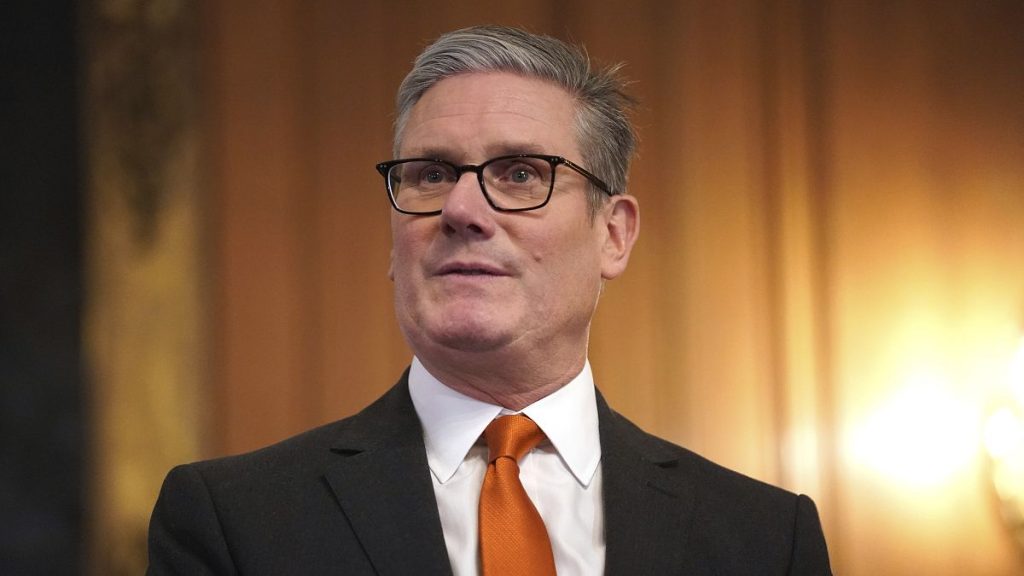Keir Starmer, the British Prime Minister, embarked on a two-day trip to Northern Europe, commencing with a visit to Norway. The central focus of his visit is the unveiling of plans for a groundbreaking green energy deal with Norway, aimed at bolstering the UK’s energy security and accelerating the transition towards a sustainable energy future. Starmer’s itinerary includes a visit to a cross-border carbon capture site, symbolizing the collaborative nature of the initiative, and discussions with his Norwegian counterpart, Prime Minister Jonas Gahr Støre, to finalize the details of the pact anticipated to be formally signed in the spring of the following year.
The proposed energy partnership holds significant promise for the UK’s energy landscape. Starmer emphasizes its potential to stimulate economic growth and shield the nation from the volatile fluctuations in global energy prices, exemplified by the disruptions witnessed in the aftermath of the 2022 Russian invasion of Ukraine. The initiative seeks to leverage the UK’s inherent capabilities to become a global leader in carbon capture technology, a crucial element in mitigating climate change. This focus on carbon capture is expected to revitalize industrial heartlands across the country, from the North Sea to the southern coast, aligning with the government’s broader plan for economic transformation. Ultimately, the partnership aims to fortify the UK’s energy independence, ensuring resilience against international price shocks and reducing reliance on authoritarian regimes.
Starmer’s visit coincides with significant developments in the UK’s carbon capture sector. Several pioneering projects aimed at removing carbon dioxide from the atmosphere have recently received approval in northeast England, with substantial investments confirmed by major energy players, including BP and the Norwegian firm Equinor. Further bolstering the green energy momentum is the announcement of engineering and design contracts for the Green Volt floating offshore wind farm, a joint venture between the Norwegian company Vargronn and the Scottish firm Flotation Energy. This ambitious project is projected to generate enough clean electricity to power approximately one million homes upon its completion in 2028. These initiatives underscore the growing momentum in the green energy sector and the potential for international collaboration to drive innovation and create economic opportunities.
Prime Minister Støre of Norway echoed the sentiment of collaboration and innovation, highlighting the importance of joint efforts in tackling future challenges. He emphasized that the partnership with the UK will be instrumental in fostering green job creation in both countries and accelerating the transition towards a more sustainable future. The two leaders have also committed to working together to overcome challenges related to carbon storage projects in the North Sea, with plans to establish a bilateral agreement or arrangement to facilitate the cross-border transport of captured CO2 under the framework of the London Protocol, an international agreement governing the transboundary movement of wastes for disposal at sea. This collaborative approach aims to establish a robust and environmentally responsible framework for managing captured carbon emissions.
Following their discussions in Norway, Starmer and Støre are scheduled to participate in what has been dubbed “sky-lateral” talks en route to Tallinn, the capital of Estonia. There, they will join other European leaders for a summit of the Joint Expeditionary Force (JEF), a UK-led military coalition comprising ten European nations. The JEF also includes the Netherlands, Latvia, Sweden, Denmark, Iceland, Finland, and Lithuania. The summit’s agenda centers on the JEF’s evolving role within a rapidly changing security landscape, particularly in light of the ongoing conflict in Ukraine. The Russian invasion has underscored the JEF’s significance in ensuring regional security for its member states. Founded in 2014, the JEF operates as a complementary force to NATO, enhancing cooperation and coordination among its member states in addressing security challenges.
The summit provides a platform for leaders to discuss the implications of Russia’s actions in Ukraine and to reaffirm their commitment to regional security. The JEF’s role is increasingly vital in maintaining stability and deterring further aggression. The alliance serves as a mechanism for enhanced military cooperation and rapid response capabilities in times of crisis. The summit is expected to address the evolving security challenges in the region and reaffirm the commitment of member states to collective defense. The discussions will likely focus on strengthening the JEF’s capabilities and enhancing coordination with NATO in response to the changing security environment. The alliance’s ability to adapt and respond effectively to emerging threats will be a key focus of the discussions. The participation of Starmer and Støre in the JEF summit, following their bilateral discussions on green energy, highlights the multifaceted nature of international cooperation, encompassing both environmental and security concerns.














